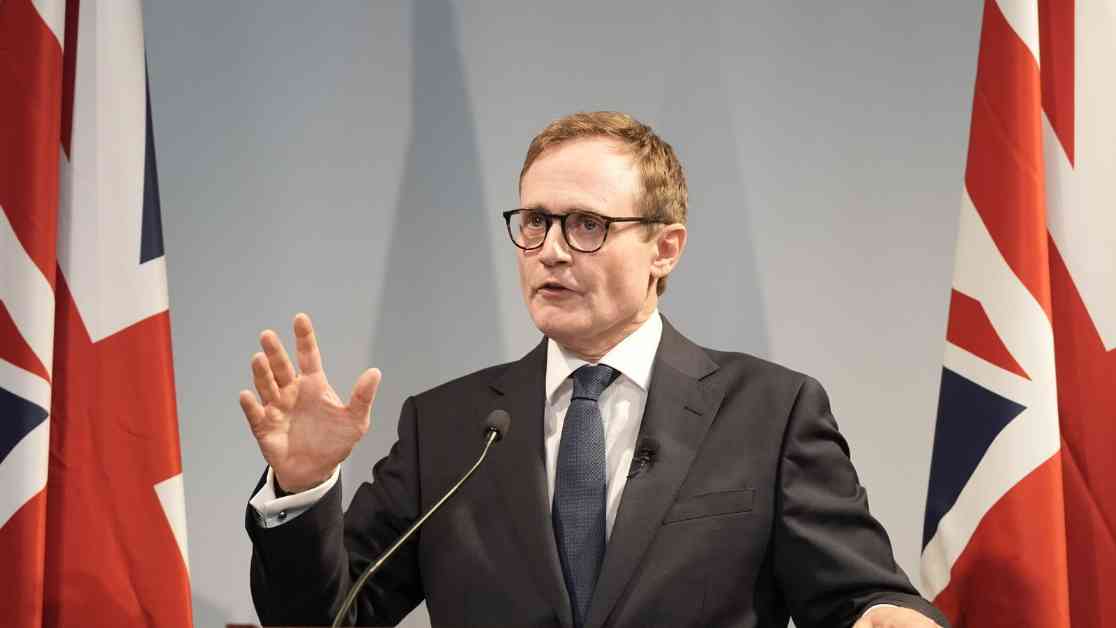Sir Keir Starmer, the leader of the Labour Party, has recently come under scrutiny for receiving a significant amount of gifts, benefits, and hospitality since taking office in December 2019. The revelation that he has received £107,145 worth of freebies has raised concerns and sparked questions about transparency and ethics in politics. Tom Tugendhat, a Conservative leadership contender, has pointed out the disparity in the amount of gifts received by Sir Keir compared to other Members of Parliament, emphasizing the need for clarity in such matters.
Tugendhat highlighted the importance of transparency in political dealings, stating that it is crucial for public figures to be open about the gifts they receive. He noted that while MPs are often offered gifts and free tickets to various events, many choose to decline them to avoid any appearance of impropriety. Tugendhat’s remarks come in the context of a league table compiled by Sky News, which shows that Sir Keir received two-and-a-half times more gifts and hospitality than the next MP on the list.
The issue of politicians accepting gifts and freebies is not a new one, but the scale of Sir Keir’s receipts has drawn attention from both within and outside the political sphere. The fact that he received gifts equivalent to the next five MPs combined has raised eyebrows and led to questions about the motivations behind such generosity. Tugendhat’s comments reflect a broader concern about the ethics of accepting gifts in a political context and the need for accountability and transparency in such matters.
Transparency and Accountability in Politics
The issue of transparency and accountability in politics is a crucial one, especially when it comes to the acceptance of gifts and hospitality by public officials. Politicians are expected to act with integrity and honesty, and this includes being transparent about any gifts or benefits they receive. The public has a right to know about the interactions and relationships that politicians cultivate, as these can have implications for their decision-making and actions while in office.
In the case of Sir Keir Starmer, the significant amount of gifts he has received raises questions about his relationships with various individuals and organizations. While there may be legitimate reasons for accepting gifts, such as attending events or receiving tokens of appreciation, the sheer volume of gifts raises concerns about potential conflicts of interest or undue influence. Transparency is essential in order to maintain public trust in the political process and ensure that decisions are made in the best interests of the public.
Ethics and Integrity in Political Leadership
Ethics and integrity are fundamental qualities that are expected of political leaders, as they are entrusted with making decisions that impact the lives of citizens. Accepting gifts and hospitality can create perceptions of favoritism or bias, which can undermine the credibility of elected officials. It is important for politicians to uphold high standards of ethical conduct and to be accountable for their actions, including the acceptance of gifts.
In the case of Sir Keir Starmer, the scrutiny over his acceptance of gifts highlights the need for greater clarity and accountability in political leadership. While it is not uncommon for politicians to receive gifts or benefits as part of their role, it is essential that these interactions are conducted with integrity and transparency. The public has a right to know about the relationships and influences that shape political decisions, and politicians have a responsibility to act in the best interests of the people they serve.
Implications for Political Leadership and Accountability
The revelations about Sir Keir Starmer’s receipt of gifts and freebies have broader implications for political leadership and accountability. They raise questions about the culture of gift-giving in politics and the potential for undue influence on decision-making processes. The fact that Sir Keir received significantly more gifts than his colleagues suggests a level of access and privilege that may not be available to others, which can have implications for the fairness and transparency of the political process.
Political leaders are expected to uphold the highest standards of ethics and integrity, and this includes being transparent about their interactions with external parties. Accepting gifts and hospitality can create conflicts of interest and undermine the credibility of elected officials, which is why it is essential for politicians to be accountable for their actions. The scrutiny over Sir Keir’s gifts underscores the need for greater clarity and openness in political dealings, in order to maintain public trust and confidence in the democratic process.
In conclusion, the issue of politicians accepting gifts and freebies is a complex and sensitive one, with implications for transparency, accountability, and integrity in political leadership. The scrutiny over Sir Keir Starmer’s receipt of gifts highlights the need for greater clarity and openness in political dealings, in order to maintain public trust and confidence in the democratic process. It is essential for politicians to act with integrity and transparency, and to be accountable for their actions, in order to uphold the highest standards of ethical conduct in public office.













